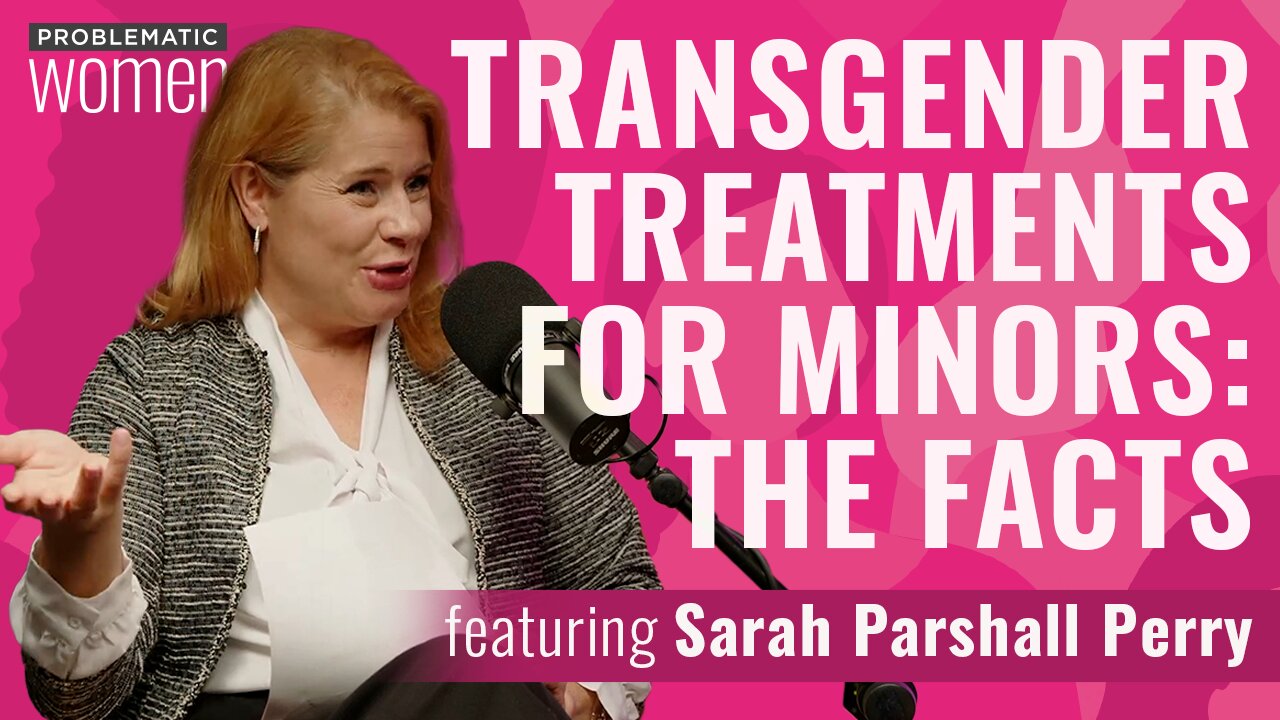Premium Only Content

US v. Skrmetti: Here's Everything You Need to Know About the Supreme Court's Transgender Case
After the Civil War, the Equal Protection Clause was added to the Constitution to protect the rights of black Americans. Simply stated, the Equal Protection Clause provides that every American is to be treated equally under the law.
Attorneys representing the United States in the case United States v. Skrmetti, argued before the High Court Wednesday that the Equal Protection Clause prevents states from banning transgender treatments for minors. The problem with this argument, according to Heritage Foundation Senior Legal Fellow Sarah Parshall Perry, is that the court has already determined that the Equal Protection Clause of the 14th Amendment only applies to immutable characteristics, qualities someone is born with, such as their race and nationality.
“The Supreme Court has never determined that something that is subjective and internal, something that you choose and you act upon, is sufficient for constitutional protection,” Perry says on the “Problematic Women” podcast.
The Supreme Court has been asked to give protection under the Equal Protection Clause to individuals with a certain poverty status or education level, but “both times the Supreme Court has said no way,” according to Perry.
The case before the court follows passage of a Tennessee law banning transgender treatments on children. Perry predicts that the court will send the issue back to the American people, allowing each state to pass laws regarding minors and gender treatments.
Parshall joins Problematic Women to discuss the high profile case and the likely outcome.
Also on today’s show, we discuss President Joe Biden’s decision to pardon his son Hunter Biden. And later in the show, we sit down with Dr. Ingrid Skop, vice president and director of Medical Affairs for Charlotte Lozier Institute, to discuss the organization’s recent study on the abortion pill.
-
 2:37
2:37
Canadian Crooner
1 year agoPat Coolen | Let It Snow!
2.45K8 -
 2:44
2:44
BIG NEM
7 hours agoWhat's Really Behind the Fake Alpha Male Epidemic?
1.05K2 -
 57:20
57:20
State of the Second Podcast
7 days agoThe Inventor of Bump Stock Fights Back! (ft. Slide Fire)
1.31K2 -
 1:04:12
1:04:12
PMG
1 day ago"I’ll be DRONED for Christmas!"
2.37K -
 23:38
23:38
RealitySurvival
1 day agoBest Anti-Drone Rounds For Self Defense
2.35K2 -
 57:43
57:43
barstoolsports
14 hours agoBest Shot Wins The Game | Surviving Barstool S4 Ep. 7
193K9 -
 1:52:24
1:52:24
Kim Iversen
10 hours agoLuigi Mangione Charged With TERRORISM | Liz Cheney Accused Of WITNESS TAMPERING, Faces 20 YEARS IN JAIL
99.9K131 -
 6:50:10
6:50:10
Akademiks
11 hours agoJay Z says he aint NEVER been friends w/ DIDDY! Bhad Bhabie lost her man? Travis Hunter Down Bad?
106K12 -
 2:27:04
2:27:04
AirCondaTv Gaming
9 hours ago $21.76 earnedWar Thunder - Tankering Around for That 10 Bomb
53.6K4 -
 4:19:05
4:19:05
SpartakusLIVE
12 hours agoThe MACHINE locks in for 12-hour POWER stream
37.1K1